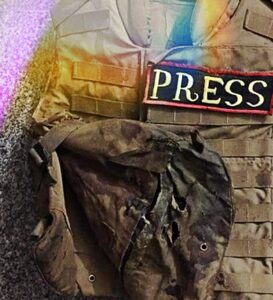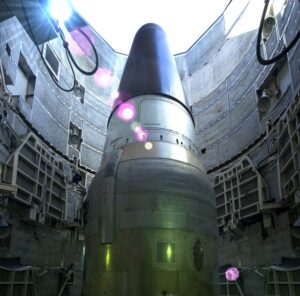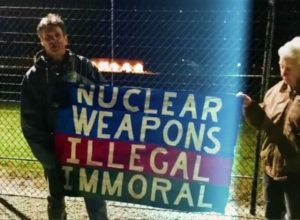Podcast: Play in new window | Download
Journalists Under Fire In Israel-Gaza Conflict
Today we turn to the status of press freedom in Israel. Since the Hamas attack on October 7, 2023, and during the ensuing war in Gaza ever since, which is now moving into the West Bank, the pressure on journalists who are trying to cover what’s been happening there is increasing… and more dangerous.
According to the New York-based Committee To Protect Journalists, the Israel-Gaza war has claimed the lives of more journalists over the course of a year than in any other conflict the organization has documented. They estimate 128 journalists killed and 69 imprisoned.
The foreign and Israeli journalists who are bold enough to enter Gaza to report on what’s happening can only do so if they are accompanied by Israeli forces… and under strict surveillance. And the Israeli military has no qualms about shutting down news outlets like Al Jazeera – even its bureau in Ramallah, in the West Bank, which is an area supposedly under Palestinian control.
And just last week, Israeli Occupational Forces arrested a US citizen, journalist Jeremy Loffredo, charging him with endangering national security for his reporting on Iranian strikes. Reporters Without Borders condemns what it calls Israel’s climate of intimidation, and has called on the Israeli authorities to stop obstructing the work of journalists covering the war.
Guest – Kevin Gosztola is a journalist and editor of The Dissenter Newsletter, which regularly covers whistleblowing, press freedom, and government secrecy. He is the author of Guilty of Journalism: The Political Case Against Julian Assange and known for his work reporting on the extradition proceedings against Assange and the court-martial against Chelsea Manning. Both were prosecuted and convicted under the Espionage Act.
—-
One issue from the Cold War topic stills looms large today: the growing threat of nuclear war. While many hoped the end of the Cold War would signal a retreat from the nuclear arms race, recent developments suggest otherwise. Tensions between amid U.S., Russia, and China have escalated, and key nuclear arms control treaties, such as the INF Treaty have eroded, with the future of the New START agreement uncertain.
The war in Ukraine, punctuated by Russia’s nuclear saber-rattling, has revived fears of potential nuclear escalation. At the same time, huge sums are being funneled into expanding and modernizing nuclear arsenals. In several decades, it is estimated that the total cost of modernizing and maintaining the U.S. nuclear arsenal amounts to approximately $1.7 trillion. Emerging technologies, like hypersonic missiles and Artificial Intelligence in military decision-making, further complicate the stability of nuclear deterrence, raising new questions about global security.
Guest – Dr. Ira Helfand is a member of the International Steering Group of the International Campaign to Abolish Nuclear Weapons, or ICAN, which was awarded the 2017 Nobel Peace Prize. Dr. Helfand is also the immediate past president of the International Physicians for the Prevention of Nuclear War, or IPPNW, a founding partner of ICAN and itself the recipient of the 1985 Nobel Peace Prize. He co-founded and served as past president of Physicians for Social Responsibility, the US affiliate of IPPNW. Dr. Helfand is also co-founder of the Back from the Brink campaign, the key vehicle for people in the U.S. who want to get involved in this issue.
—————————




